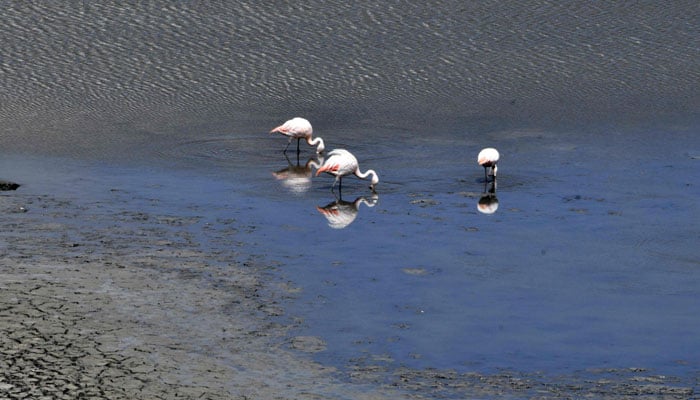Pakistan's bird population 'at risk due to climate change'
Wildlife expert says a 3.5°C rise in temperature by the next century will lead to extinction of 600 to 900 species of birds
Pakistan is one of the worst-affected countries by the wide-ranging threats posed by climate change which now is also threatening the country's bird population.
Adverse effects of climate change are damaging the abodes of birds as the little creatures are sensitive to various forms of perturbations to the climate, wildlife expert Dr Muhammad Azhar warned.
Around 600 to 900 species of birds will go extinct in case there's a 3.5°C rise in temperature by the next century, with 89% of extinction occurring in tropical areas.
The population of common birds like sparrows, which are often taken for granted, is dropping at a rapid rate, WWF World Wide Fund for Nature (WWF) warned in its report.
Tropical mountain birds, such as the northern snowbird are especially vulnerable to climate change due to their lack of access to higher elevations for increasing temperatures, Dr Azhar added.
Birds play a vital role with regard to human health, public hygiene, pest control and the reproduction of plants, he said while highlighting the significance of the role that birds play in ecosystems.
Climate change patterns have limited temperature variations and low metabolic rates that are largely threatened by biodiversity degradation, he added.
According to a report on sparrows, their populations are already on the International Union for Conservation of Nature (IUCN) ‘Red List’ of Threatened Species, where Greater London lost nearly 70 per cent of its sparrows between 1994 and 2001.
Commenting on the declining sparrow population in the country, IUCN Country Manager Mahmood Akhtar Cheema said that — as feared by many ornithologists — the only reason sparrows are not on the Red List in Pakistan yet is that nobody has so far attempted to actually count the number of these birds existing at present.
Climate change has caused advanced spring migration, changes in birds’ habitat, higher possibility of disease transmission, earlier egg-laying time, less food availability, and a decline in the population, he added.
Highly and moderately vulnerable birds may lose more than half of their current range of the geographic area where they live as they are forced to search for suitable habitats and climate conditions elsewhere, he added.
The connections between climate change and birds are becoming increasingly clear: Warming temperatures are changing where birds live, the timing of their migration patterns and egg laying, and even the sizes and shapes of their bodies.
-
Security forces gun down 30 terrorists in multiple IBOs in KP: ISPR
-
MQM-P calls for new province in Sindh
-
US report validates Pakistan military edge over India: PM
-
Banned TTP poses serious threat to Pakistan security: UNSC panel
-
CM Afridi clarifies remarks on by-poll after ECP requests army deployment
-
Dubai sees 3.2m Pakistani passengers in 2025 as airport sets new milestone
-
Security forces kill 23 Indian proxy terrorists in KP's Kurram
-
Pakistan to construct island to boost oil exploration: report












